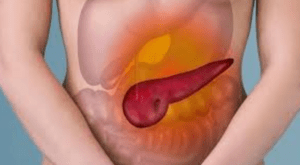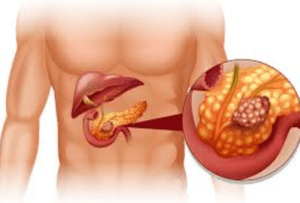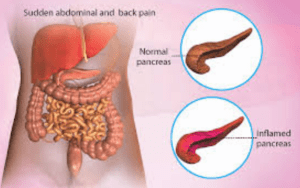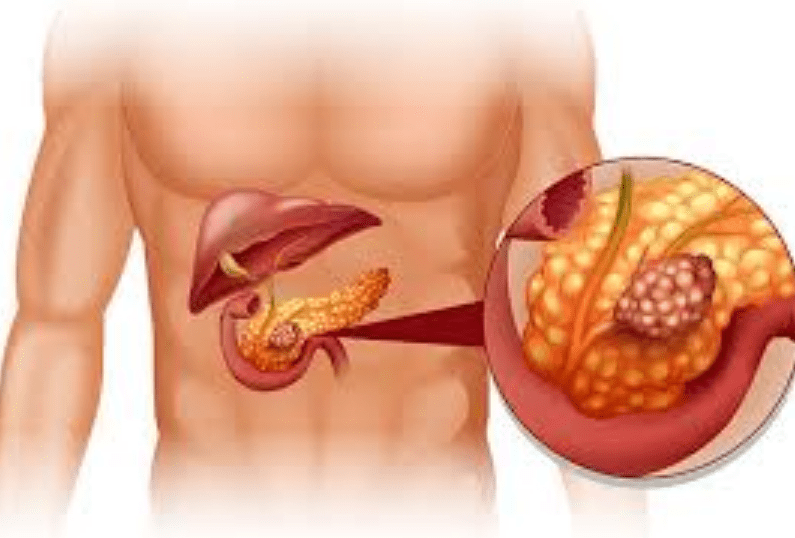Living with Pancreatitis: Your Ultimate Guide
Tips for Managing Symptoms and Improving Quality of Life
Living with Pancreatitis – Surviving and Thriving with Pancreatitis: Essential Tips for Managing Symptoms and Enhancing Your Quality of Life Pancreatitis is a condition that occurs when the pancreas, a glandular organ located behind the stomach, becomes inflamed.
This inflammation can cause damage to the pancreas and surrounding tissues, leading to a range of symptoms and complications. Managing symptoms of pancreatitis is crucial to improving the quality of life for those living with the condition. Symptoms of pancreatitis can range from mild discomfort to severe pain and can significantly impact daily life.
In addition, pancreatitis can affect digestion, leading to weight loss, malnutrition, and other complications. Living with pancreatitis can be challenging, but managing symptoms and enhancing the quality of life is possible with the right tools and strategies. This blog post will explore tips and strategies for managing pancreatitis symptoms <span style=”font-weight: 400;”>and improving overall well-being. We’ll also discuss treatment options and resources for support.

Understanding living with Pancreatitis
Pancreatitis is a condition that can have a range of causes, from heavy alcohol consumption to underlying health conditions. There are two types of pancreatitis: acute and chronic. Acute pancreatitis is a sudden inflammation of the pancreas, which can cause severe abdominal pain, nausea, vomiting, and fever.
Heavy alcohol consumption, gallstones, certain medications, or abdominal trauma can cause it. Acute pancreatitis can lead to complications such as organ failure or infection if left untreated. Chronic pancreatitis is a long-term inflammation of the pancreas that can cause permanent damage to the organ.
Chronic pancreatitis is often caused by long-term heavy alcohol consumption, but it can also be caused by underlying health conditions such as cystic fibrosis or hereditary pancreatitis. Symptoms of pancreatitis can include severe abdominal pain, nausea, vomiting, diarrhea, fever, and weight loss. Diagnosis of pancreatitis typically involves a physical exam, blood tests, imaging tests such as an ultrasound or CT scan, and sometimes a pancreas biopsy. Complications of pancreatitis can include pancreatic cysts, infections, bleeding, and organ failure. In addition, chronic pancreatitis can lead to malnutrition, diabetes, and an increased risk of pancreatic cancer. If you experience symptoms of pancreatitis, it’s essential to seek medical attention immediately. Treatment for pancreatitis will depend on the type and severity of the condition but may include hospitalization, pain management, dietary changes, and sometimes surgery. In the next section, we’ll explore strategies for managing symptoms of pancreatitis and improving the overall quality of life.

Managing Pancreatitis Symptoms:
When it comes to managing symptoms of various illnesses and conditions, there are a variety of approaches that can be taken.
Medication may be necessary in some cases, while lifestyle changes or alternative therapies may be more effective in others.
Here are some tips and strategies for managing common symptoms:
2. Pain:
Various factors, including injury, chronic conditions like arthritis, fibromyalgia, or stress, can cause pain.
If you are experiencing pain, you must talk to your healthcare provider to determine the cause and find an appropriate treatment plan.
Depending on the cause and severity of the pain, options may include over-the-counter or prescription pain medication, physical therapy, or alternative treatments like acupuncture or massage therapy. In addition to these treatments, lifestyle changes can help manage pain. This may include regular exercise to strengthen muscles and reduce strain on joints and stress-management techniques like meditation or deep breathing.

2. Anxiety and Depression
Anxiety and depression are common mental health conditions that can significantly impact the quality of life. If you are experiencing symptoms of anxiety or depression, it is essential to seek professional help from a mental health provider. Treatment may include therapy, medication, or a combination of the two.
In addition to professional treatment, several lifestyle changes can help to manage symptoms of anxiety and depression. This may include regular exercise, a healthy diet, good sleep hygiene, and stress-management techniques like yoga or meditation.

3. Digestive Issues
Digestive issues like bloating, constipation, or diarrhea can be caused by various factors, including diet, stress, and underlying medical conditions. If you are experiencing digestive issues, you must talk to your healthcare provider to determine the cause and find an appropriate treatment plan.
Treatment options for digestive issues may include dietary changes, medication, or alternative therapies like probiotics or herbal remedies. Lifestyle changes like reducing stress and increasing physical activity may also help to manage symptoms.
Fatigue
Fatigue is a common symptom of many medical conditions, including chronic fatigue syndrome, fibromyalgia, and sleep disorders.
If you are experiencing fatigue, you must talk to your healthcare provider to determine the cause and find an appropriate treatment plan. Treatment options for fatigue may include lifestyle changes like improving sleep hygiene and increasing physical activity, as well as medication or alternative therapies like acupuncture or massage therapy. so managing symptoms of various illnesses and conditions can be challenging, but many options are available. Working with your healthcare provider and making lifestyle changes where necessary makes it possible to manage symptoms and improve your quality of life.

Enhancing Quality of Life –
Enhancing quality of life is an essential aspect of overall health and wellness. Many strategies and techniques can be used to improve quality of life, from self-care practices to community involvement. Here are some tips and strategies for enhancing the quality of life:
- Prioritize Self-Care
Self-care is an essential component of enhancing the quality of life. This includes taking care of your physical, emotional, and mental well-being. Here are some self-care practices that can help:
- Get enough sleep: Aim for at least 7-8 hours per night to help your body and mind recharge.
- Eat a healthy diet: A balanced diet rich in fruits, vegetables, whole grains, and lean protein can help to support overall health and well-being.
- Exercise regularly: Regular physical activity can help to improve physical and mental health, reduce stress, and increase energy levels.
- Practice stress management techniques: Meditation, deep breathing, or mindfulness exercises.
- Build Positive Relationships
Strong relationships can provide a sense of connection and support to enhance the quality of life. Here are some tips for building positive relationships:
- Stay connected with loved ones: Regular communication and quality time with family and friends can help to strengthen relationships.
- Join a club or organization: Participating in groups or clubs that share your interests can help you to connect with like-minded individuals.
- Volunteer in your community: Volunteering can help you to feel connected to your community and provide a sense of purpose.
- Pursue Hobbies and Interests
Pursuing hobbies and interests can help to enhance the quality of life by providing a sense of fulfillment and enjoyment.
Here are some tips for pursuing hobbies and interests:
- Try new things: Exploring new hobbies and interests can help to keep things fresh and exciting.
- Set achievable goals: Setting goals can help you to stay motivated and focused on your interests.
- Join a class or workshop: Taking a class or workshop can provide an opportunity to learn new skills and connect with others who share your interests.
Practice Gratitude
Practising gratitude can help to shift your focus towards the positive aspects of life, enhancing overall well-being. Here are some tips for practising gratitude:
- Keep a gratitude journal: Writing down things you are grateful for each day can help to cultivate a sense of appreciation.
- Express gratitude to others: Letting others know that you appreciate them can help to strengthen relationships and build connections.
- Take time to appreciate small moments: Practicing mindfulness can help bring awareness to the moments of joy and gratitude throughout the day.
Incorporating these tips and strategies into your daily routine can enhance your quality of life and improve your overall well-being.
Remember that improving your quality of life is an ongoing process, and it may take time to find the strategies that work best for you.
With persistence and dedication, however, it is possible to enhance your quality of life and live a fulfilling and satisfying life.

Treatment Options for Pancreatitis :
Treatment for pancreatitis will depend on the type and severity of the condition and any underlying health conditions that may contribute to the inflammation.
Here are some standard treatment options for pancreatitis:
- Medical treatments:
- Pain management: Depending on the severity of the pain, over-the-counter pain medications or prescription pain medications may be recommended. In some cases, nerve blocks or other procedures may be necessary to manage pain.
- IV fluids and nutrition: If you’re experiencing severe symptoms or complications, you may need to receive fluids and nutrition intravenously in a hospital setting.
- Enzyme replacement therapy: If your pancreatitis is causing issues with digestion, your doctor may recommend enzyme replacement therapy to help your body digest food properly.
- Surgery:
- Removal of the gallbladder: If gallstones are causing your pancreatitis, your doctor may recommend surgery to remove your gallbladder.
- Drainage procedures: If you have fluid buildup in or around your pancreas, your doctor may recommend a drainage procedure to remove the fluid.
- Pancreatic Surgery: In severe cases of chronic pancreatitis or if other treatments have been ineffective, your doctor may recommend surgery to remove part or all of your pancreas.
Alternative therapies:
- Acupuncture: Some people find relief from pain and other symptoms through acupuncture.
- Herbal remedies: Some herbal remedies may help manage symptoms of pancreatitis, such as ginger, turmeric, and peppermint. However, it’s essential to talk to your doctor before trying herbal remedies, as they can interact with other medications or have other potential side effects.
- Mind-body therapies: Techniques such as meditation, yoga, or tai chi can help manage stress and anxiety, which can exacerbate symptoms of pancreatitis.
Working with your doctor to determine the best treatment plan for your needs is essential. In addition, maintaining a healthy lifestyle with a balanced diet, regular exercise, and avoiding alcohol and smoking can help manage symptoms of pancreatitis and improve overall well-being.

Conclusion
Living with pancreatitis can be challenging, but many strategies and resources are available to help manage symptoms and improve quality of life.
By working closely with your doctor and utilizing various treatments and therapies, it is possible to live well with pancreatitis. Early diagnosis and treatment are crucial. Don’t hesitate to seek support from resources like support groups or counselling.
Living a fulfilling and healthy life with pancreatitis is possible with the right tools and support.
References:
National Institute of Diabetes and Digestive and Kidney Diseases (NIDDK).
Pancreatitis. https://www.niddk.nih.gov/health-information/digestive-diseases/pancreatitis
American College of Gastroenterology (ACG). Pancreatitis. https://gi.org/topics/pancreatitis/



